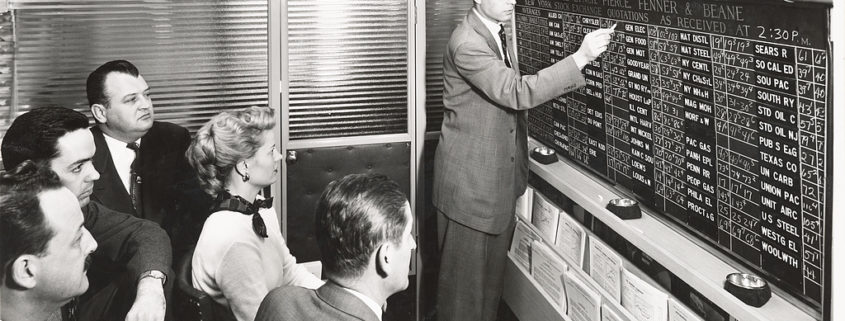3 Crucial Lessons From Jesse Livermore – The Greatest Stock Trader of All Time
Join our Telegram channel for more market analysis & trading tips: t.me/synapsetrading
Jesse Livermore is known to be the most prolific stock trader. Several books have been written about him and his trading track record is legendary. His profits were so great that he was reported to have owned mansions in various places around the world, each fully staffed, complete with limousines and steel-hulled yacht for his holidays.
Some of you might have read that Livermore was worth $100 million after shorting the 1929 great market crash.
Above: Some of the books about Jesse Livermore, available in major bookstores.
What Guidelines Did Jesse Livermore Follow As A Trader?
Among the many quips he had about trading and investing, I’ve picked out some of the key ones that could make or break your trading account.
While many complain about the difficulties in trading forex, stocks, or commodities, there is a good minority that makes consistent profits in the markets.
What sets Jesse Livermore apart from his peers?
- Buy rising stocks and sell falling stocks.
The above seems obvious, but many people fail to adhere to this rule. Many people like to ‘pick tops’ and ‘pick bottoms’. Now, professional traders do occasionally try to pick tops and bottoms, but they do so with very strict risk management, and always have a contingency plan for when the trade doesn’t work out.
Beginners often makes the mistake of trying to trade against the trend. While this can be profitable for some, talk to anyone in the trading industry and they will tell you that trend-following is the major money-making strategy that every trader uses. It’s simple, easy to add positions on, and it’s stress free. The problems come when beginners make a buck from trading with the trend, and start to explore ‘new ways’ to trade and invest.
2. Keep trades that show a profit, end trades that show a loss.
Jesse Livermore is famous for his humongous profits, but behind every profitable trader is the admirable ability to deal with a string of losses. It’s one thing to know that you need to cut losses, but it’s another to actually cut your losses when you are wrong. George Soros famously quips that it is not how many times you win or lose, it’s how much you make when you win, and how much you lose when you are wrong.
Cutting losses is a psychologically hard thing to do in modern society. We’re ingrained to be always correct, and never admit that you messed up, because it reflects badly on you as a person. However, with investing, no one is marking you for the number of losses; the profit that you make is the final report card that matters, and that’s where we want to be focusing on.
3. Never average losses by buying more when your stock has fallen.
Too many people refuse to be wrong on their investments or trades.
I have heard of people say this statement: “Even if the stock drops a lot, I’ll just keep it because I’m buying for ownership and dividend cashflow, not just for capital gains.” Sure, but what happens if the stock you hold drops by 70%? 80%? You’ll buy more?
Buying more when the stock has fallen is a sure-way to get your trading account to zero. It’s taking more risk when the odds are against you.
Think About This: Which of These 3 Guidelines Have Brought You Losses in the Past?
Many traders soon realize early in their career, that their trading accounts could have been profitable if not for silly mistakes. Avoiding these silly mistakes requires experience, maturity, the correct knowledge, and of course, proper mentoring.
I was lucky to be mentored by veteran traders early on in my trading career. Their advice, based upon thousands of hours of market experience, contributed greatly to who I am today, and I never fail to mention, during trading seminars or public events, that by tapping on their experience, I was able to quickly attain a level of success that kept me profitable.
If you’re currently struggling as a trader, ask yourself this question: “Which mistakes have I been making?”
Acknowledging trading mistakes is a continuous process of learning and growing.
 Our flagship mentoring program is suitable for both beginners and advanced traders, covering the 4 strategies which I used over the past 15 years to build up my 7-figure personal trading portfolio.
Our flagship mentoring program is suitable for both beginners and advanced traders, covering the 4 strategies which I used over the past 15 years to build up my 7-figure personal trading portfolio.
 If you're looking for a reputable brokerage that covers all products (SG stocks, US stocks, global stocks, bonds, ETFs, REITs, forex, futures, crypto) and has one of the lowest commissions, this is what I currently use.
If you're looking for a reputable brokerage that covers all products (SG stocks, US stocks, global stocks, bonds, ETFs, REITs, forex, futures, crypto) and has one of the lowest commissions, this is what I currently use.
After trading for 18 years, reading 1500+ books, and mentoring 1000+ traders, I specialise in helping people improve their trading results, by using tested trading strategies, and making better decisions via decision science.













Leave a Reply
Want to join the discussion?Feel free to contribute!